
Exposé Online
What's old
Exposé print issues (1993-2011)
- 1 (October 1993)
- 2 (February 1994)
- 3 (May 1994)
- 4 (August 1994)
- 5 (October 1994)
- 6 (March 1995)
- 7 (July 1995)
- 8 (November 1995)
- 9 (March 1996)
- 10 (August 1996)
- 11 (February 1997)
- 12 (May 1997)
- 13 (October 1997)
- 14 (February 1998)
- 15 (July 1998)
- 16 (January 1999)
- 17 (April 1999)
- 18 (November 1999)
- 19 (May 2000)
- 20 (October 2000)
- 21 (March 2001)
- 22 (July 2001)
- 23 (December 2001)
- 24 (April 2002)
- 25 (September 2002)
- 26 (February 2003)
- 27 (August 2003)
- 28 (December 2003)
- 29 (April 2004)
- 30 (September 2004)
- 31 (March 2005)
- 32 (September 2005)
- 33 (May 2006)
- 34 (March 2007)
- 35 (January 2008)
- 36 (October 2008)
- 37 (July 2009)
- 38 (July 2010)
- 39 (Summer 2011)
Reviews
Kraan — Flyday
(Revisited Records REV 028, 1978/2005, CD)
Kraan — Live 2001
(Bassball 20013 BAS, 2001, CD)
Kraan — Nachtfahrt
(Revisited Records REV 013, 1982/2005, CD)
Kraan — Wiederhören
(Revisited Records REV 012, 1977/2005, CD)
Kraan — Live 88
(Revisited Records REV 014, 1988/2005, CD)
Kraan — Dancing in the Shade
(Revisited Records REV 029, 1989/2005, CD)
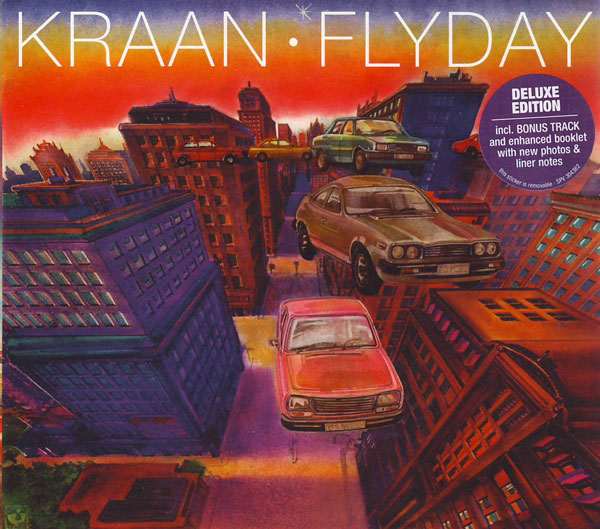

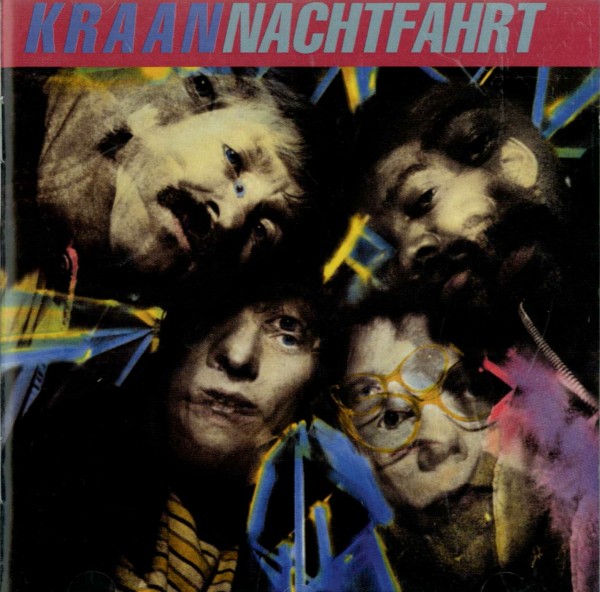
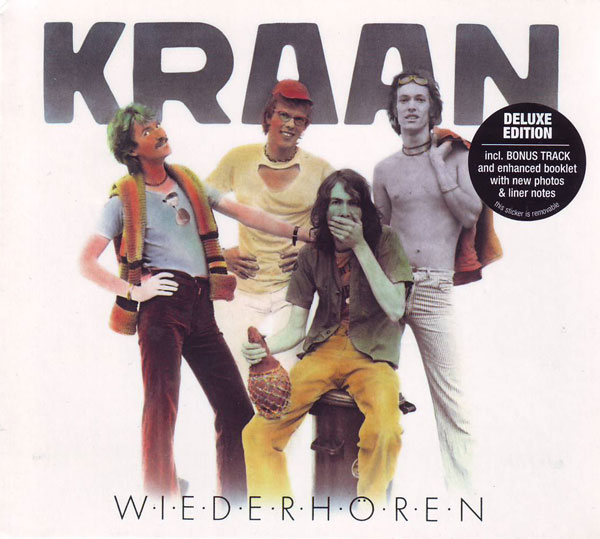
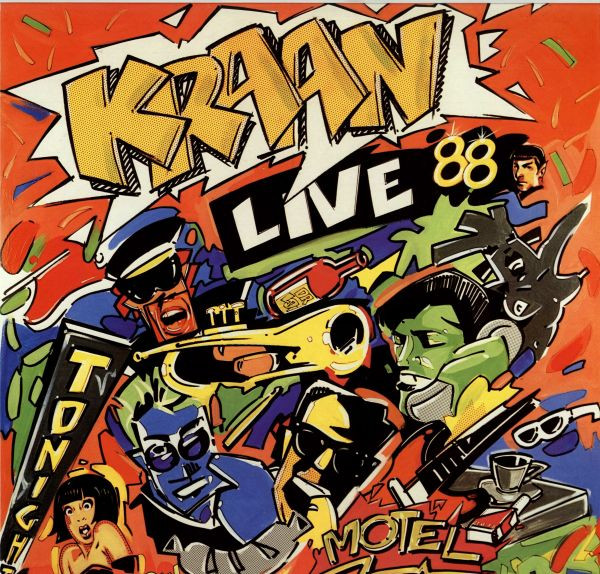
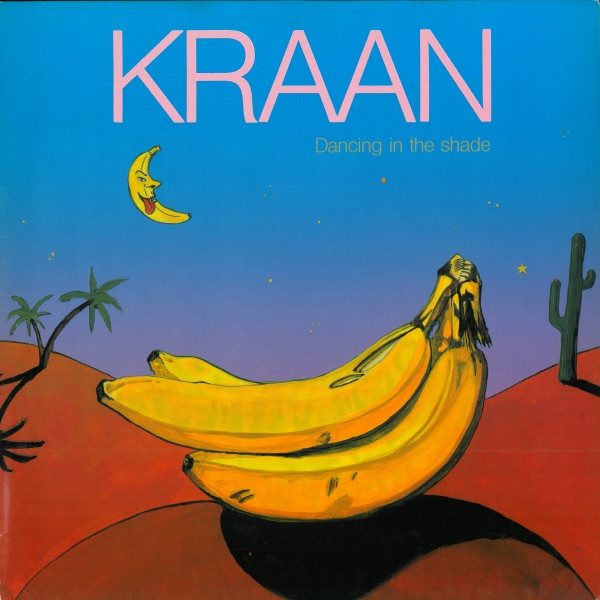
Recently Revisited Records, a division of InsideOut Music, has been reissuing a number of German bands from the past: Klaus Schulze, Amon Düül II, and Kraan. To date, they have released these six albums from the Kraan catalog. If you believe the hype and liner notes, Kraan was one of the most innovative German bands from the last century. I don’t get it. There is no doubt that Helmut Hattler is an extraordinary bassist. His playing shines through on nearly every song on these six CDs. However, his skills as a bassist aren’t sufficient to carry the music. I think that Kraan tried to be too much of a chameleon and blend into the styles and trends of each decade. They just didn’t have the look or the licks. From their live recordings in this batch, that is where they excelled as a band. It is a shame that they just could not capture the excitement and spontaneity of a concert in the studio. The studio recordings, by and large, are sterile. Plus the vocals are their weakest link, preventing Kraan from exploring some interesting musical ideas only hinted at in the instrumental breaks.
What is really interesting is that on Wiederhören Conny Plank engineered half of the studio songs and only these tracks have any merit. Plus they happen to be some of the strongest material the band ever recorded. Fortunately, the songs with vocals recorded by Conny actually are listenable. There are only two worthwhile songs on Wiederhören, “Vollgas Ahoi” and the title track. As with other Revisited Records reissues, there is bonus material. For Wiederhören, they included a live version of the title track that runs about 19 minutes.
Flyday was recorded one year later in 1978. This release was supposed to mark a new beginning for the band. The problem on this release was the overuse of the factory presets on their new digital keyboards. The result being that there is not a lot of difference in sound from song to song. The only saving grace to Flyday is the live bonus track, “Gayu Gaya.” This recording is a huge improvement over the studio version on the album, but not enough to justify purchasing Flyday.
Nachfahrt is from 1982 and there is only one song of note on this release — but it is a monster! “Wintruper Echo” could be the best song Kraan ever recorded. It has a fantastic Helmut bass solo opening the song followed by doubled guitars and drums to produce a Krautrock masterpiece reminiscent of Neu!. The remainder of Nachfahrt is mediocre at best and the inclusion of the bonus track “The Daily Blues,” written and featuring vocals by their drummer Gerry Brown, does nothing to enhance the reissue.
Then after a four-year hiatus, Kraan got together and recorded Live ’88. At this point in their career, they were no longer with a label and had added Joo Kraus on trumpet, keyboards, and percussion to their lineup. The addition of brass to the band greatly enhanced their jazz-rock fusion. This is an excellent album. Kraan breathes new life into “Vollgas Ahoi,” “You’re Right,” “Wintruper Echo,” and “Nachfahrt.” Helmut is at his energetic best on bass. Live ’88 has lots of cool jazz-rock jams and improvs. There is only one problem and it is again the overuse of the factory presets on the keyboards. The sameness of the sounds causes the songs to blur into one another.
Two years later Kraan released Dancing in the Shade. Once again theytried to morph and adapt to current musical trends. This is a very uneven release consisting of awful pop songs, mediocre jazz-rock, and ethnic world music. At this point in their career, Kraan was more a collection of individuals pursuing their own interests rather than a cohesive band. The music is still well executed, but overall kind of boring. There is only one song, “One Day,” which has any promise at all of interesting an Exposé reader. “One Day” is different from the rest of the disc with its chanting and dark edgy music. The bonus tracks are three demo versions of songs on the studio album: “Dancing in the Shade,” “Good Enough,” and “Polarity,” which would have been better left off.
Lastly, there is another live album, Live 2001. The first six songs are from the Herzburg Festival and the other five are from the International Donau Festival, both recorded in June 2000. The band line up here is the same as the original from the late seventies and early eighties: Peter Wolbrandt, Jan Fride, Ingo Bischof, and Helmut Hattler. These two concerts feature a “Best of Kraan” set list with songs spanning their 30-year history. Though not quite as energetic as Live ’88, Live 2001 still provides some exciting moments of jazz-rock fusion and Hattler’s bass solos. To summarize then, the best CDs of this batch, and the only ones worth purchasing, are the two live recordings and possibly Wiederhören. Steer clear of the others.
by Henry Schneider, Published 2006-05-01
[Regarding Live 2001]
During the 70s they were Germany’s premiere progressive funk-groove band, beginning their career not far from the jazzier side of the psychedelic Krautrock scene, slowly evolving toward more of a high-energy fusion sound by the decade’s end. Primarily an instrumental outfit, their vocal pieces are sung with almost incidental abandon, in a style that might remind of Hendrix. Throughout the years their style owed as much to bands like The Allman Brothers as it did to their German contemporaries, driven by the powerhouse rhythm section of drummer Jan Fride and bassist Helmut Hattler. This live release commemorates Kraan’s 30th anniversary, and proves beyond any shadow of a doubt that the passion and spirit that drove the band in their classic years is still alive and well, perhaps even stronger. The lineup is as it was for much of the late 70s: Hattler, Fride, guitarist and singer Peter Wolbrandt, and keyboardist Ingo Bischof. The material is culled primarily from the albums Andy Nogger, Live, Let It Out, and Wiederhoren, but there are a couple excellent new pieces here as well. They breathe new life and urgency into all these numbers, but most noteworthy are the jazzy fire and fluid grooves of “Borgward” and “Vollgas Ahoi,” and the complex funkiness of “Yaqui Yagua,” all outstretching any previous versions. Kraan should be high on the list of potential US festival headliners; maybe we can hope. Meanwhile, here’s 70 minutes of the band at their best. Highly recommended.
by Peter Thelen, Published 2002-04-01
Filed under: Reissues, Issue 33, 2005 releases, 1978 recordings, 2001 releases, 1982 recordings, 1977 recordings, 1988 recordings, 1989 recordings
Related artist(s): Kraan, Hellmut Hattler
What's new
These are the most recent changes made to artists, releases, and articles.
- Review: LeoNero - Monitor
Published 2026-03-04 - Review: Sterbus - Black and Gold
Published 2026-03-03 - Release: Janel Leppin's Ensemble Volcanic Ash - Pluto in Aquarius
Updated 2026-03-02 15:06:51 - Release: Janel Leppin - Slowly Melting
Updated 2026-03-02 15:05:27 - Release: Alister Spence - Always Ever
Updated 2026-03-02 15:04:11 - Release: Let Spin - I Am Alien
Updated 2026-03-02 15:02:41 - Review: Falter Bramnk - Vinyland Odyssee
Published 2026-03-02 - Review: Exit - Dove Va la Tua Strada?
Published 2026-03-01 - Review: Steve Tibbetts - Close
Published 2026-02-28 - Release: We Stood Like Kings - Pinocchio
Updated 2026-02-27 19:24:02 - Release: Stephen Grew - Pianoply
Updated 2026-02-27 19:20:11 - Release: Thierry Zaboitzeff - Artefacts
Updated 2026-02-27 00:16:46 - Review: Kevin Kastning - Codex I & Codex II
Published 2026-02-27 - Release: Zan Zone - The Rock Is Still Rollin'
Updated 2026-02-26 23:26:09 - Release: The Leemoo Gang - A Family Business
Updated 2026-02-26 23:07:29 - Release: Ciolkowska - Bomba Nastoyashchego
Updated 2026-02-26 13:08:55 - Review: Immensity Crumb - Chamber Music for Sleeping Giants
Published 2026-02-26 - Release: The Gatekeepers - Diary of a Teenage Prophet
Updated 2026-02-25 15:55:58 - Review: Mars Lasar - Grand Canyon
Published 2026-02-25
